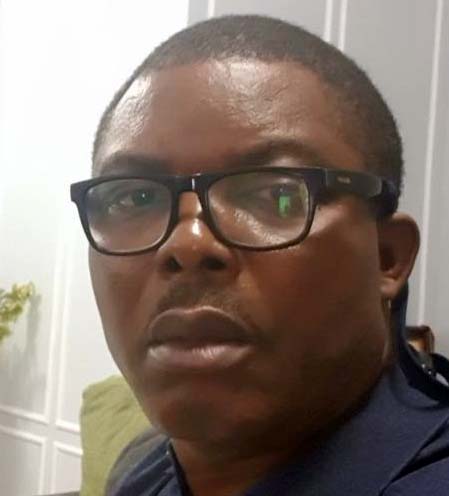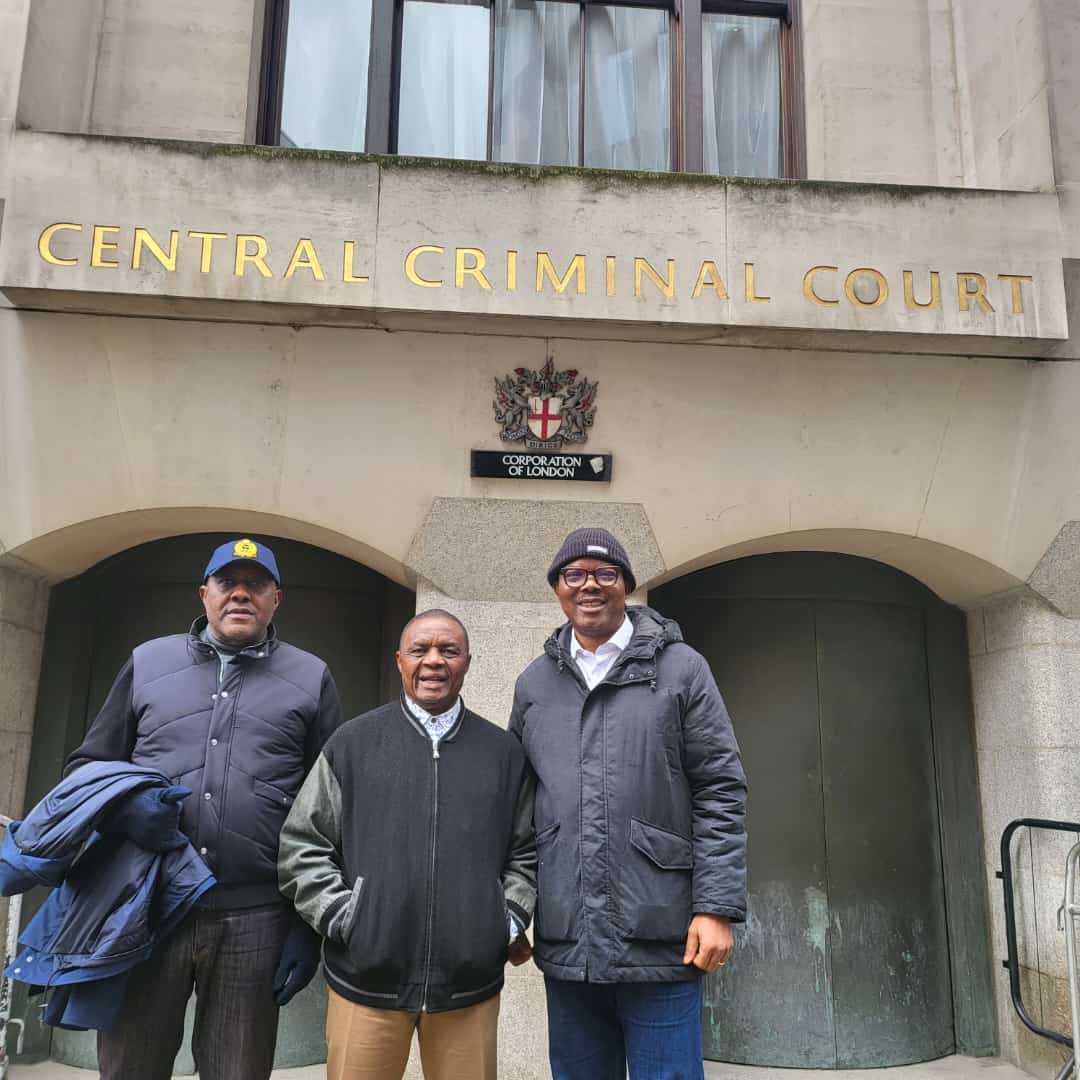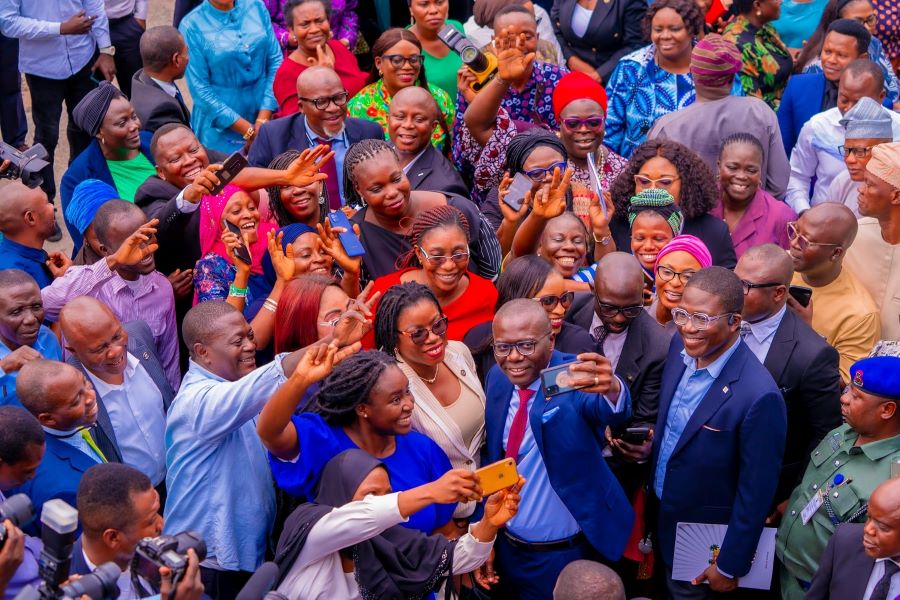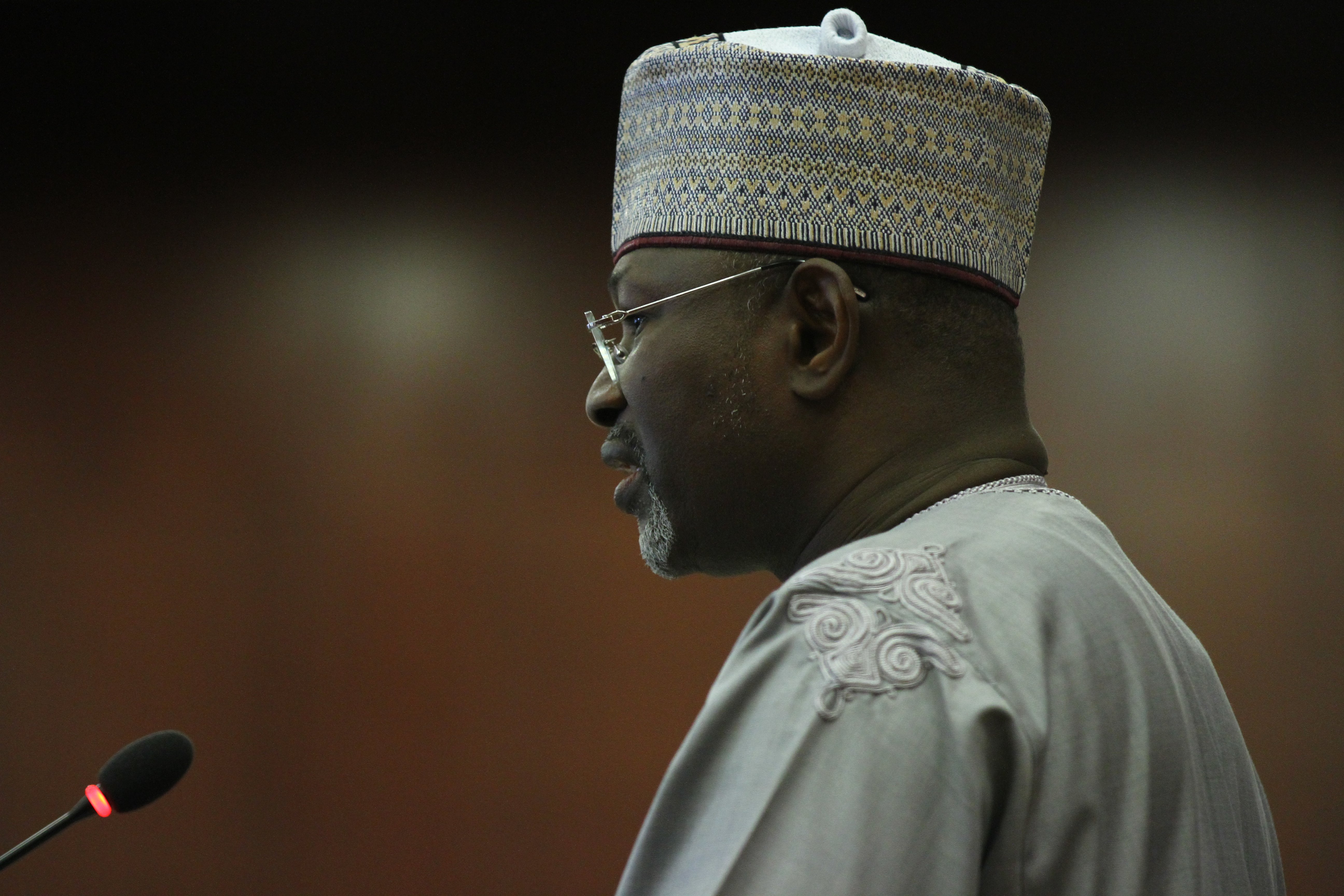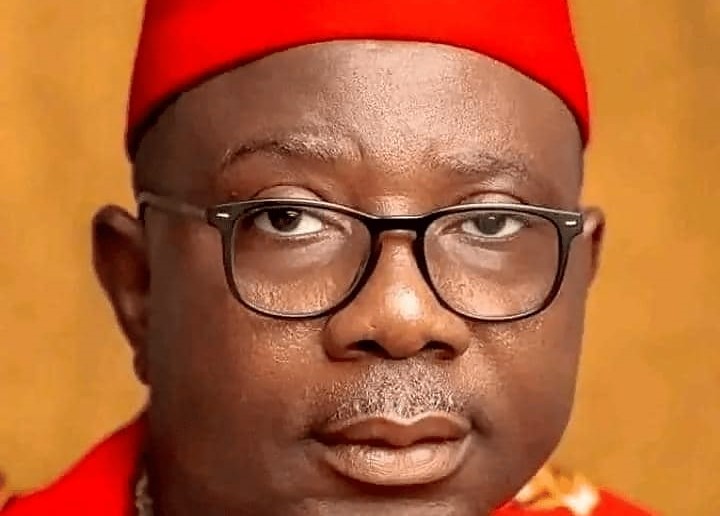Today I joined the former national publicity secretary of the PDP, Chief Olisa Metuh (Akajiugo Nnewi) on a solidarity visit to the former deputy president of the Senate, Distinguished Senator Ike Ekweremadu (Ikeoha) who is standing trial at the Central Criminal Court, Old Bailey, London. The Senator from Enugu State is accused of organ trafficking to the UK. Our paths crossed when, as Chief of Staff to Gov. Chimaroke Nnamani, he represented the government in the Zik Institute planned by former president of the Senate, Puis Anyim Pius. I was the secretary of the steering committee.
Our visit started in the earlier hours of a cold and rainy day, and when we arrived at Court 5 venue of the trial, we were asked to look for where to keep our phones and other electronics we may have since those items are not allowed in the court, and the court has no lockers where we could keep them. So, we went in search of where to keep them, and Olisa Metuh, who has been frequent at the trial, took us to a nearby shop where we kept the items after paying £5.
Back to the court, we were joined by Ike Ekweremadu Jr., his wife; a retired permanent secretary, FCT, Chief Chinyeaka Ohaa, and a couple of other relatives of the embattled senator. Together we were invited to enter the Public Gallery where we were to sit and observe proceedings. Before you are allowed entry, you have to remove your wrist watches, belts, coins, and other metal objects you have on you. Those items were then put into a scanning machine and we were then allowed to pass through a metal detector into the Public Gallery which is made up of only 36 seats out of which the 12 front rows must not be occupied.
The judge was already seated, looking repellant in his British Judges’ regalia. He immediately invited the 12-member jury made of five males and seven females, two of whom are blacks.
Advertisement
The moment we entered the gallery and before we sat down, we managed to wave at the senator who was seated inside a glass cubicle facing the Judge’s dais. In the cubicle was the senator’s wife, the doctor at the centre of the matter. We were not allowed to wave. So, we did it quickly and sat down.
Senator Ekweremadu waved back with smiles as if to say ‘yes, my people are here’. He looked a bit slim with grey hairs, but if he had any emotions, he didn’t betray them.
The trial resumed at 10:38am with the judge informing the jury that Sonia Ekweremadu, the lady in need of the organ, was not in court because she had just been discharged from the hospital and that she needed to recuperate at home, a request the judge said he granted.
Advertisement
Shortly after that, Senator Ekweremadu was asked to leave the glass cubicle and mount the witness stand. Thereafter, the defence counsel, Martin Hicks KC, led him in evidence.
The session lasted until 12:12 pm when the judge granted a 10-minute break and the jury was ushered out. They returned to their sequestration.
Now, I don’t want to go into full details of the evidence-in-chief, but what caught my attention most was when Senator Ekweremadu was asked to respond to allegations that the organ donor was induced and that he was naive. The senator told the court that “no 21-year-old living in Lagos can be induced”. Asked why he thought so, he added “because they are usually street-wise”. He also maintained throughout that he did everything legally, but that he discovered at a point that he was being scammed. Asked why he continued when he found that out, he said the urge to save his daughter’s life was his preoccupation, but that even at that, he was not ready to do anything illegally.
The evidence continued with Senator Ekweremadu making his case as detailed, calm, and as calculated as he could. Sporting a multi-coloured sweater on top of a jeans trousers, the senator gave a good account of himself as far as we lay people could tell. His voice was firm. His accounts consistent.
Advertisement
Meanwhile, I took more interest in the setting of the court and the seating arrangement. Not too large, beautifully decorated with wood fittings, chairs and tables decorated with green fabrics and marbel tops. The court was not crowded and was orderly spaced out.
There was absolute quietude with the only noise coming from the typing by the lawyers and the aides of the court. All of them typed as Ekweremadu was led in evidence. All of them including the judge. The only ones not typing were the jurors; they scripted and listened. All the lawyers and court staff had computers. The judge had four, one of which was a laptop with which he typed.
Again, everybody in that court had three documents: one contained all the exchanges between Senator Ekweremadu and everybody involved in the processes that led to the case; another contained exhibits; the other which was in black and white contained Senator Ekweremadu’s social activities within the period leading to the organ controversies. It included his political party meetings, his social events like weddings and funeral ceremonies he attended. All of them were accompanied by pictures of him at the events and they were fully titled.
It would be recalled that Senator Ekweremadu had told the court earlier in the trial that he issued an “abide by the law” instruction to a doctor who offered to find a kidney donor for his sick daughter for a fee”.
Advertisement
Ike Ekweremadu, 60, admitted paying Dr Obinna Obeta an initial fee of 1m naira (£1,800) in September 2021 to find a suitable kidney donor for his daughter, Sonia, a postgraduate media student at Newcastle University.
He said: “Dr Obeta would require 1m to start the search and screening, so I transferred the money.”
Advertisement
Asked by his counsel if he understood the law concerning donating organs, Ekweremadu said: “For somebody to donate an organ he must never be coerced. He must have free will and no reward should be involved, except necessary medical expenses and loss of earnings.”
Going by what I witnessed in court today details of which I cannot put down here for want of time and space, the case is serious. But I am confident the senator will make his case; that he didn’t coerce the donor; that he ensured due process in looking for a donor; that he did it to save the life of his daughter.
Advertisement
But this is a layman’s opinion. My opinion from what I observed, even though one sitting is not enough for me to conclude, and I am not a lawyer.
However, it needs to be pointed that the British are not joking. Whether you want to bring in a house maid or you’re looking for an organ donor, watch out for the red lines and do not cross them. Officials of the UK government look for such people and could promise them citizenship if they could say they were coerced. Once they’re able to get them to say this, you are in trouble.
Advertisement
I think this is what is playing out in this case. But that is my opinion. The court will determine which is which.
I sympathise with the senator and his daughter. I wish them victory.
Views expressed by contributors are strictly personal and not of TheCable.
Add a comment
